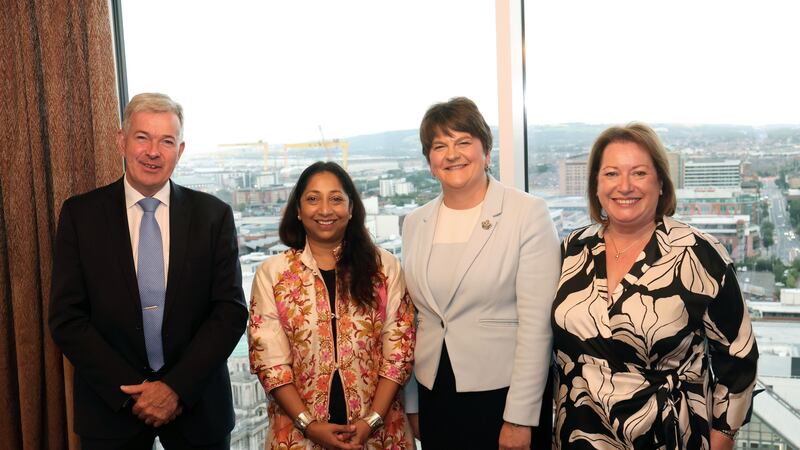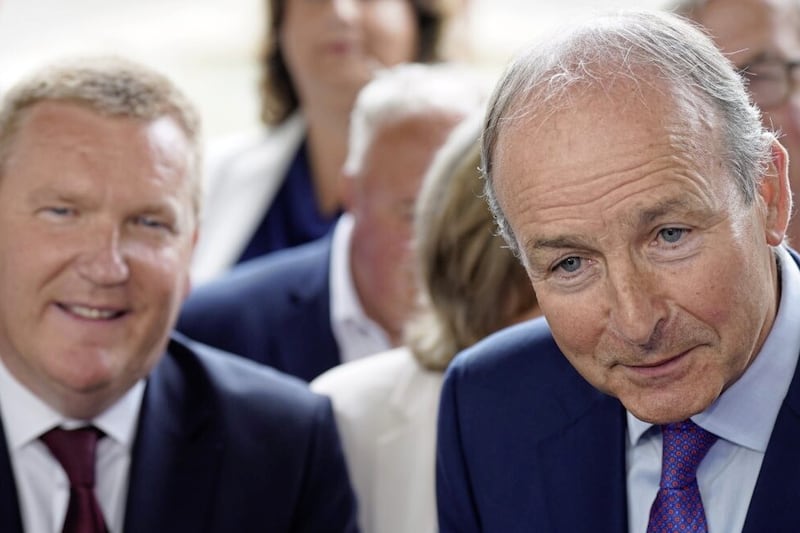It was good to see Together UK hold a public event at Queen's University this week.
The organisation was established last year with the purpose to proactively inform and engage debate on the benefits for all constituent parts of the United Kingdom to remain as a union. There was a lot to be hopeful for, in terms of articulation of what those benefits are, over and above maintaining the status quo simply for its own sake.
And then Professor Cedric Bell’s presentation was introduced: “A united Ireland – why it is neither desirable nor advisable.”
No, no, no – that is not why I have come to your YouTube channel, Together UK. I have come not to be told why reunification is wrong but why the United Kingdom is right.
Professor Bell set out his stall that the aims of the session were firstly to challenge some of the reasons being advanced to support a border poll and to emphasise the importance of personal identity and a sense of belonging. There were four other aims, but column space means I’ll have to save those for another day.
Bell set out four projected arguments in favour of a united Ireland – Sinn Féin becoming the largest party, demographic changes in the north, removal of the unionist political majority, and an increase in the number of people holding Irish passports.
But proponents of reunification don’t see any of these things singly or together as arguments in favour of a border poll. They are merely indicators of changing attitudes which mean a border poll should be discussed, the potential outcomes examined and plans put in place to facilitate any potential future change.
In terms of personal identity and sense of belonging, Bell posed the question which country and its value system do you identify with and why? It is his belief that the answer to this question trumps economic arguments and statistics and I agree with him 100 per cent.
Bell cites growth in a Northern Irish identity as a key dynamic in terms of personal identity and belonging and it is his view that northern Irish identity is better retained and nurtured in a United Kingdom with the separate and distinct identities of Scots, Welsh and English. A northern Irish identity would not survive reunification, he claims.
But why not? There is no evidence for that. When he goes on to talk about accommodations on a new flag or national anthem or Ireland re-joining the commonwealth, this is a mistaken focus on the lowest common denominator.
Accommodation goes much deeper that what flag flies over government buildings or what song is sung at sporting events. It’s about reflecting shared as well as diverging histories – whether that be service in the British military or opposition to it. It’s about an honest acceptance that Irish cultural references are as likely to be from Monty Python as from Mise Éire.
?If Together UK’s purpose with this lecture was to tell people why the United Kingdom is good, then it failed. It merely repeated why unionism thinks a united Ireland would be bad.
The issue of accommodation came to the fore again this week in Tobermore. Following the erection of a bilingual street sign in the south Derry village, local DUP councillor Anne Forde said: “A lot of people were very angry about this and many residents have been voicing their opposition to an Irish sign being put up in a Protestant village… Everyone was shocked, I was shocked myself.”
Anne wasn’t the only one shocked. I had to have a cup of tea and a sit down and check that this is the same Anne Forde who is an accomplished accordion player in the Ulster Scots tradition who I myself have seen perform at a number of multicultural events.
Consistency in cultural accommodation is essential in acknowledging that our society is already altered by demographic change and diversity. If we do find ourselves in a reunification scenario, the acceptance and accommodation we can bring to bear now will help us build a cohesive society that everyone feels part of.
These are important conversations to have and I do hope that future Together UK events will pivot to the positive.
Within the unionist and republican communities there will be people who have a visceral affinity to reunification or to the union and nothing will change that, nor would anyone expect it to. But the people who are undecided and those who are open to persuasion want to hear positive messaging. They want to know how any future constitutional status of the north impacts on them and their families.
As Professor Cedric Bell said: “The strongest dynamic is always aspiration for the future rather than holding on to the past.” And once again, I agree with him.








